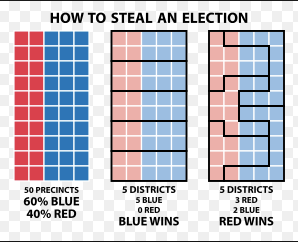WASHINGTON — Thomas B. Hofeller achieved near-mythic status in the Republican Party as the Michelangelo of gerrymandering, the architect of partisan political maps that cemented the party’s dominance across the country.
But after he died last summer, his estranged daughter discovered hard drives in her father’s home that revealed something else: Mr. Hofeller had played a crucial role in the Trump administration’s decision to add a citizenship question to the 2020 census.
Files on those drives showed that he wrote a study in 2015 concluding that adding a citizenship question to the census would allow Republicans to draft even more extreme gerrymandered maps to stymie Democrats. And months after urging President Trump’s transition team to tack the question onto the census, he wrote the key portion of a draft Justice Department letter claiming the question was needed to enforce the 1965 Voting Rights Act — the rationale the administration later used to justify its decision.
Those documents, cited in a federal court filing Thursday by opponents seeking to block the citizenship question, have emerged only weeks before the Supreme Court is expected to rule on the legality of the citizenship question. Critics say adding the question would deter many immigrants from being counted and shift political power to Republican areas.




